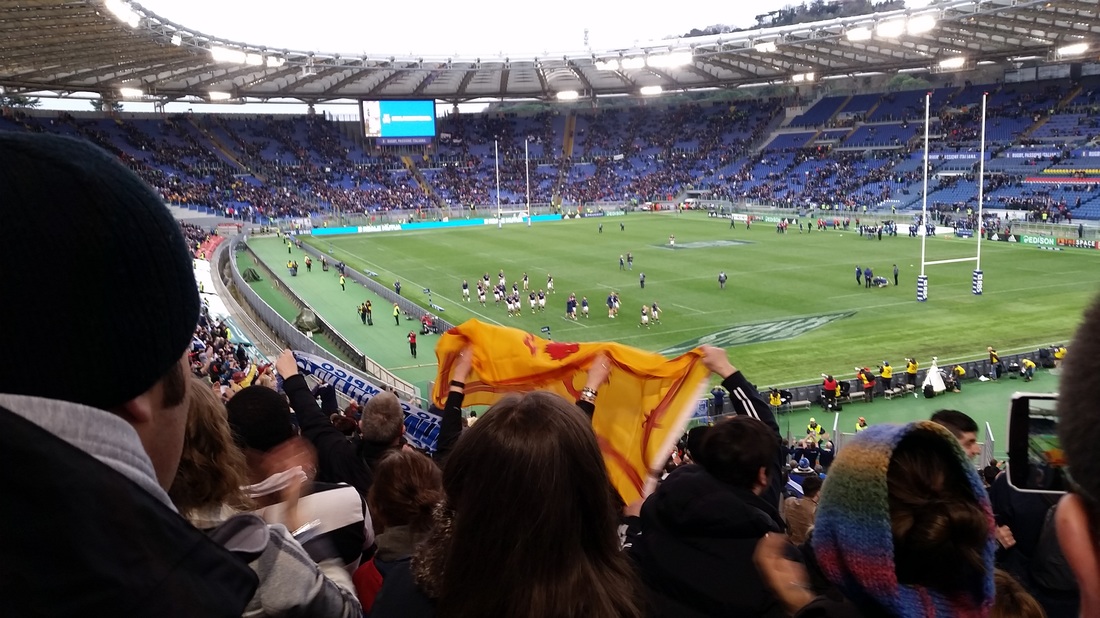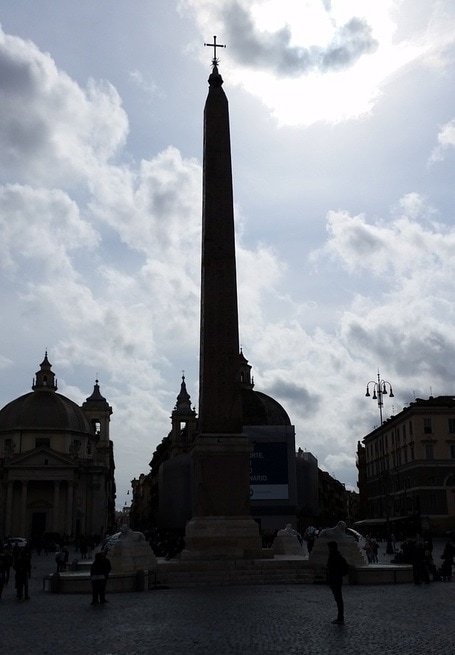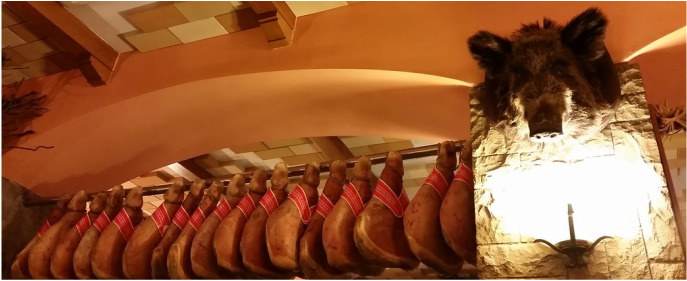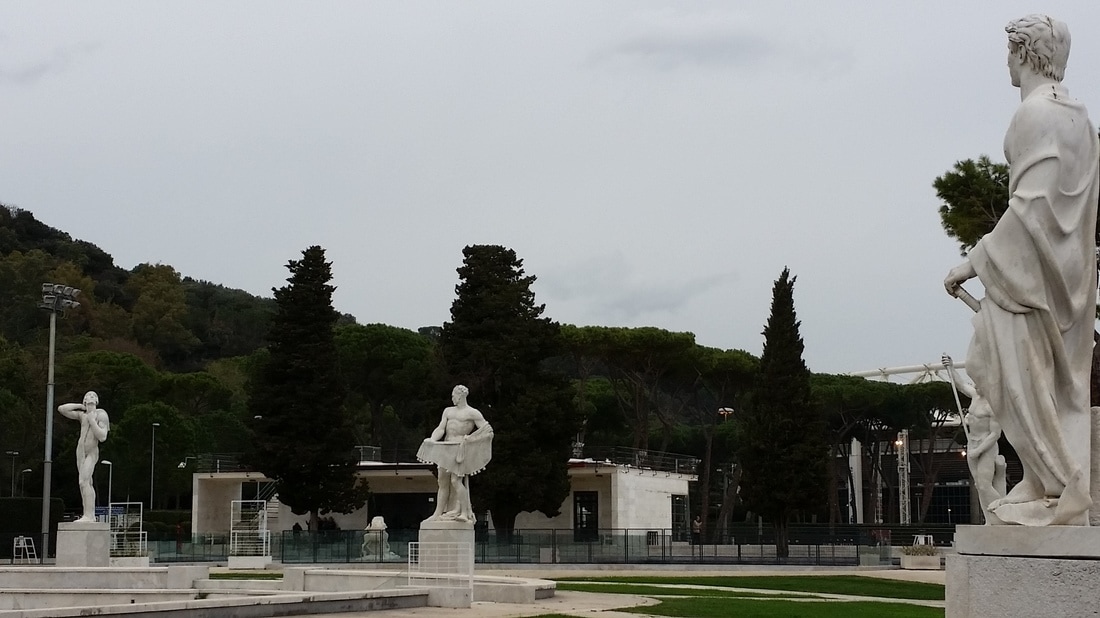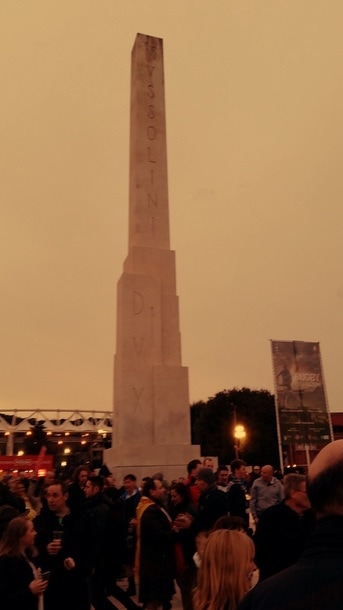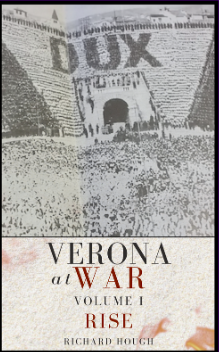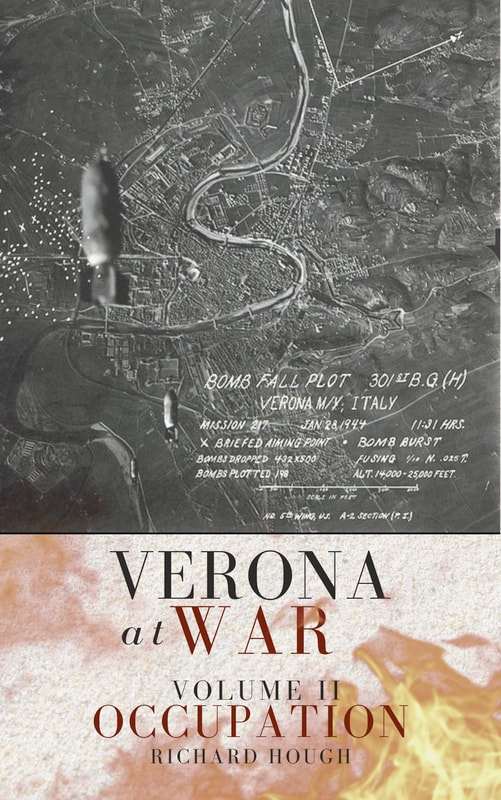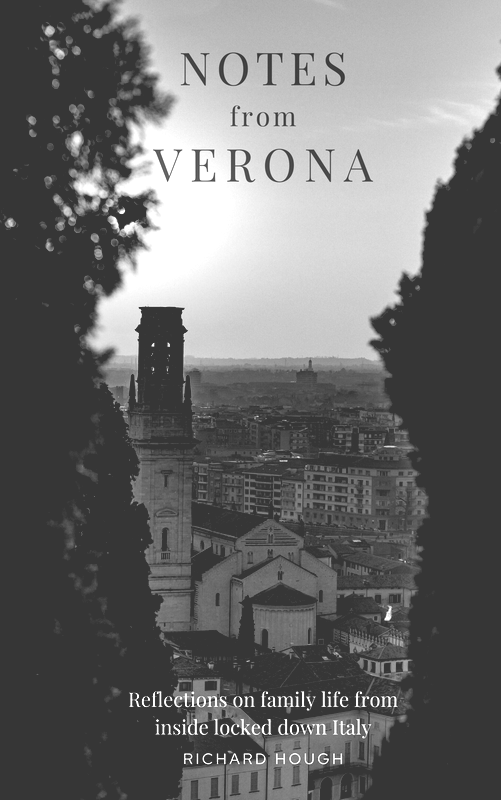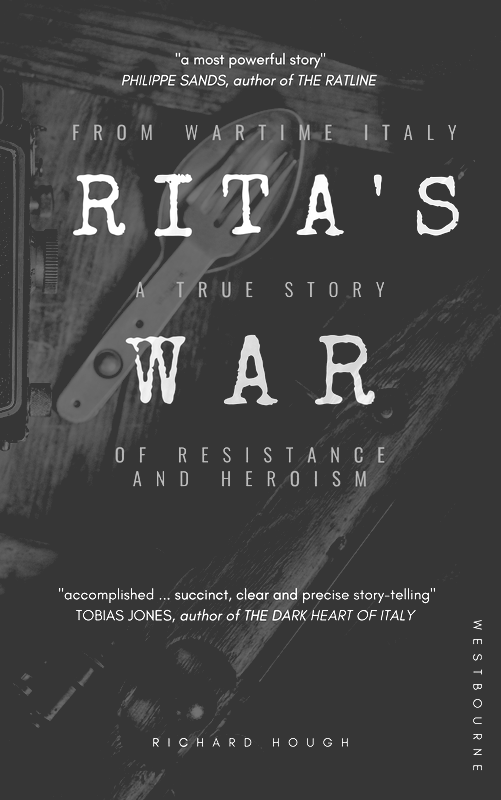|
As we begin to look forward to the next round of the Six Nations matches, I thought I'd take the opportunity to look back at my recent visit to Rome, which included the annual "Wooden spoon decider" between Scotland and Italy. I had taken the early morning train from Verona and was in Rome by 10.30 am. As the persistent rain showed no signs of abating, I quickly dropped my bags off at one of the many budget hotels near the station and was soon on my way towards Piazza del Popolo, the large urban square to the north of the historic centre that was the muster point for many Scottish fans heading to the game. By now the rain had stopped and, coming from the sub-alpine conditions of the north to the temperate subtropical mediterranean climate of Rome, I was beginning to feel rather overdressed. Most of my compatriots were far more suitably attired in short-sleeved rugby tops and kilts. My companions for the day were all long-standing veterans on the international rugby circuit and, I'm pleased to say, brought their cumulative experience to bear on proceedings. They had made reservations at ristorante pizzeria “Il Vignola", which was as authentic a taste of Rome as I have ever experienced - including the famous pasta cacio e pepe (on previous visits I had usually settled for the standard tourist fare to be found in the historic centre). The food, wine, beer, service and company were all first class. The perfect prelude to the match. Il Vignola had the added benefit of being almost equidistant between Piazza del Popolo and Stadio Olympico (I told you these guys were good). Suitably refreshed we made our way the short distance to the stadium - the magnificent Stadio Olympico. There was a real carnival atmosphere in the area surrounding the stadium (the magnificent Foro Italico), with marquees, bars and entertainment for the nearly 70,000 fans who were by now flooding through the security perimeter. Although I vaguely remembered reading something about the fascist origins of this magnificent sporting complex, the details, like my general state after such an indulgent lunch, were somewhat hazy. Hazy or not, the tell-tale signs of fascist era architecture were striking. Simple but grandiose, Foro Italico, Rome's magnificent sports complex, is littered with 15 foot tall marble sculptures depicting muscular Italian athletes in various semi-erotic (to me anyway) poses. Fascist architects in the 1920s and 1930s drew inspiration from classical Roman buildings, but while Roman design has ornate details and rounded edges, fascist buildings are generally cold and forbidding. Symmetry, straight lines and simplicity were the order of the day. The ancillary buildings surrounding the stadium were designed in exactly this way. Foro Italico was originally known as Foro Mussolini. Inspired by the Roman forums of the imperial age, it was designed by Enrico Del Debbio and, later, Luigi Moretti. Built between 1928 and 1938, it remains one of the preeminent examples of Italian fascist era architecture. The match itself passed in a bit of a blur - something to do with a never-ending hip flask of whisky and the proximity of the in-stadium bar. For the record, Scotland won 36-20, ending a ten-game losing streak and, in the process, racked up the most points they have scored in a single Six Nations match. Flooding out of the stadium after the game, most fans seemed oblivious to the significance of the 50-foot obelisk that bears the inscription “Mussolini Dux”. It is the world's greatest surviving monument to the fascist dictator. While some may argue that such monuments have no place in modern sport, I rather enjoyed my afternoon in Rome's playground built by fascists. I would even go as far as to say that I appreciated the aesthetic beauty and efficient functionality of the Foro. The Mussolini Obelix, more than anything else, stands as a lasting reminder of the perils of fascism and the tragic absurdity of its vainglorious leader. Click here to read more about the dark history of Rome's Stadio Olympico with the Gentleman Ultra.
|
AboutRichard Hough writes about history, football, wine, whisky, culture + travel and is currently working on a trilogy about wartime Verona.
|
